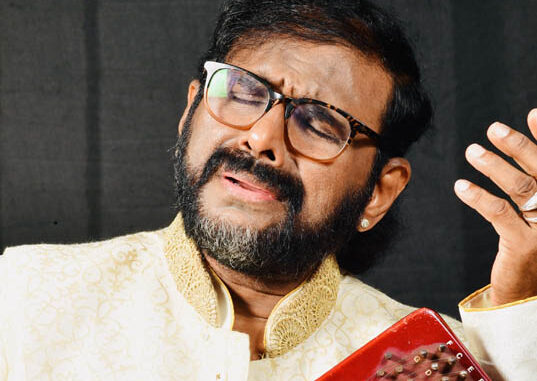

A 22-year-old trained Carnatic musician, who aspires to be a Hindustani vocalist, leaves his North Kerala home and goes to Pune to search for his Guru. He finds him (The Guru) and follows him to Mumbai. After initial hesitation, the Guru accepts him after his would-be disciple (The Shishya) convinces him by saying “It’s your music that I want to learn.” Neither the Guru nor the Shishya knew that it’s going to create a saga of the classic ‘Guru-Shishya Parampara.’ It’s the story of the shishya – Pandit Ramesh Narayan, and the Guru – no other than Padma Vibhushan, Sangeeth Martand, Late Pandit Jasraj.
Born in a family of Carnatic music, Pandit Ramesh Narayan has the unique distinctions of being one of the few vocalists from Kerala who is a torch bearer of Mewati gharana Hindustani classical music. Born on 3rd November, 1959, Ramesh Narayan hails from a family of Carnatic musicians settled at Kuthuparambu near Kannur, North Kerala. He had his early lessons in Carnatic music from his parents – father Narayana Bhagvathar and mother Narayani Amma -up to the age of 20. While he was a student at the Music College, Chittoor, he was deeply drawn to Hindustani music and decided to dedicate himself to mastering it. Moving to Pune, he learnt Sitar under the tutelage of Shri. Satchidananda Phadke, a renowned disciple of the Sitar Maestro Pandit Ravi Shankar. Becoming a competent Sitarist in no time, Shri. Ramesh Narayan found himself captivated by Hindustani vocal. He joined the Akhil Bharatiya Gandharva Mahavidyalaya and earned his “Visharad” (exponent) with high distinction. He felt entranced by the passionately evocative style of Pandit Jasraj and resolved to hone his talent and technique in the Mewati Gharana. Pandit Jasraj trained him rigorously in the subtler aspects of music in the traditional Gurukula style.
Ramesh became popular by performing a 36-hour vocal recital as part of celebrating the 100 years of Indian Cinema at the Film and Television Institute of India, Pune. This performance got him an entry to the Limca Book of Records 2013 for completing the 24 hour raga cycle.
Few years back, Pandit Jasraj said in an interview, “I am really proud of Ramesh ji that he has established himself and he has not only established himself, he established me also.”
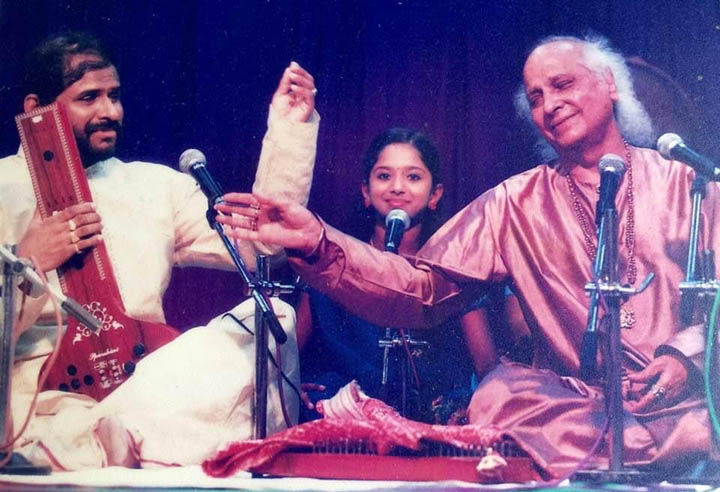
And for Ramesh ji, who is now an institution himself, having Pandit Jasraj as his Guru is the ‘Biggest achievement’ of his life. “I don’t think I have achieved anything so far as an artist. I am still trying to achieve. But the biggest achievement of my life is my Guru ji.”
Also, he does not have any regrets in life except that he does not have time to play sitar anymore.
Ramesh began his career composing music for documentaries, films and television programs in Hindi, Malayalam and Tamil. Ramesh’s film-scoring career began in the early 1990s with the Malayalam film Magrib. His notable works include Garshom, Meghmalhar, Saira, Makalkku, Rathri Mazha, Pardesi (2007 film), Manjadikuru Adaminte Makan Abu Veettilekkulla Vazhi, Makaramanju, Edavappathy, Ennu Ninte Moideen, Suryakantha etc. He also started working for a Bengali movie in 2012 which never saw daylight because of financial issues.
“Music composing is the toughest thing”, said Ramesh ji when asked by the TIP on his call on a classical artist’s association with film music composition. “You cannot learn composing – for that you need talent which comes from within from your childhood. I am talking about real talent actually. I started composing when I was just ten. It’s gifted. Actually, I don’t even remember how I came to films. I never approached anybody. People wanted me to compose music for their films. Guru ji (Pandit Jasraj) was so happy with my performance as a composer, he told me several times that among his disciples, I am doing a unique job as a classical singer and film music composer”, he further added.
Ramesh Narayan has earned National Film Awards, four Kerala State Film Awards, two Kerala Film Critics Association Awards. He has received the Indian Music Academy Award for popularizing Hindustani classical music in Kerala from the then President of India Dr. A. P. J. Abdul Kalam. In 2023, he was honored with Kerala Sree Award, the prestigious civilian award given by the Government of Kerala.
Pandit Ramesh Narayan who recently performed in different cities in the USA, finds a big difference between the audience here and back in India. “You get good audience in both countries but there is a huge difference. Here (In America) listeners are more attentive towards the performance and you get more love, in India you get less attention and more criticism.” It does not mean that he is afraid of criticism. As he still considers himself as a learner, Ramesh ji is open to criticism from people who really understand music. “There was a time when the music critics were connoisseurs. But now every other person becomes a critic without knowing anything. Especially with the buzz of social media, criticism lost its glory”, he explains.
Other than music, his only hobby is watching football and news. He is extremely unhappy with the current political situation in India as he feels that now ‘bad’ politics prevails over ‘good’ politics which is only harming the country.
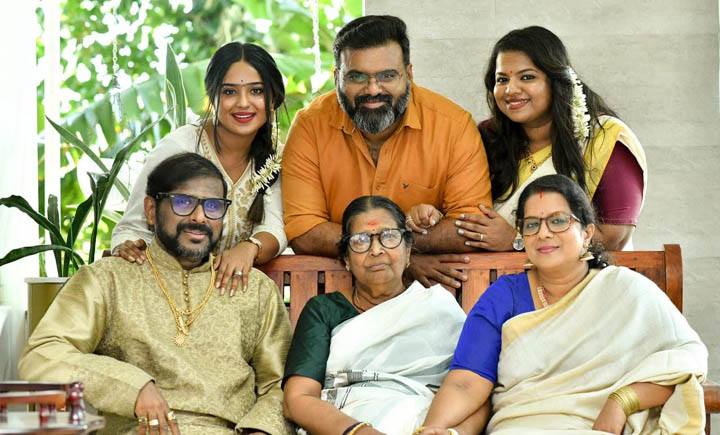
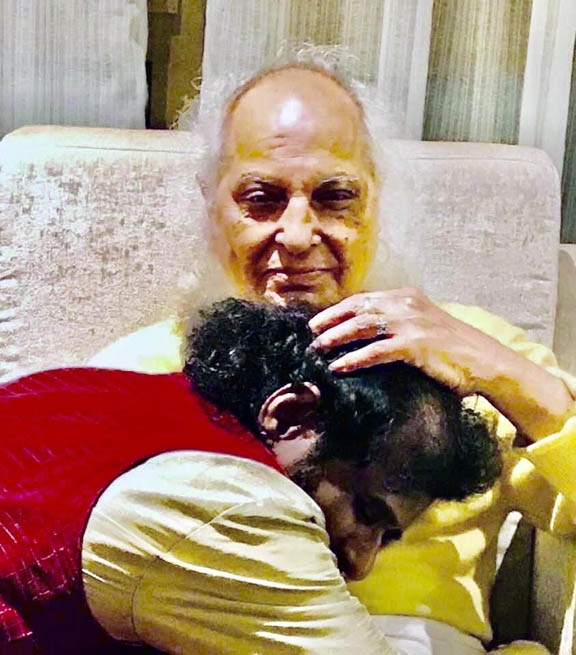
A complete family man, Pandit Ramesh Narayan’s wife Hema Ji is also a renowned classical singer. Following their footprints, daughters Madhuvanti and Madhushree are also trained classical singers and perform nationally as well as internationally.
The values he emphasizes on his family and students are simple – “Self-realization is the most important thing in life. It’s not easy but keep on trying. Respect others first if you want to get it back and finally, never forget your Guru.”


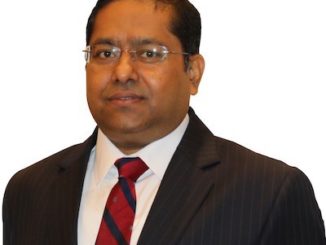


Be the first to comment